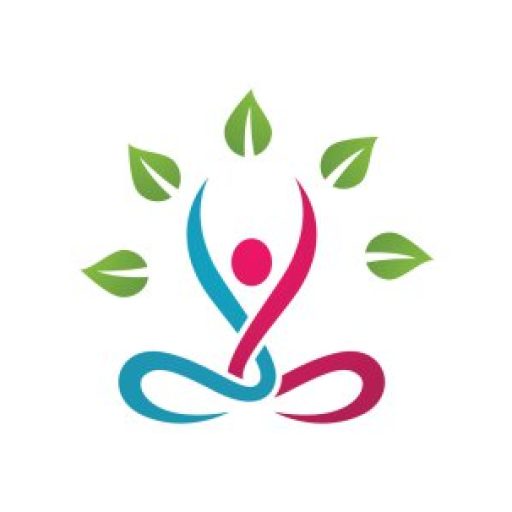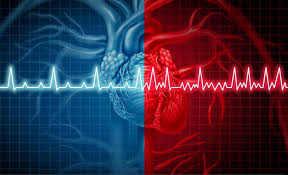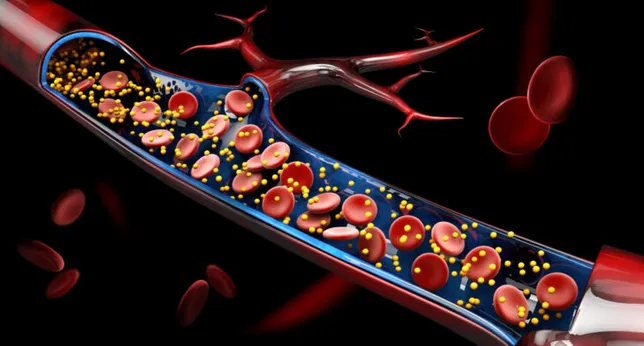Content of the Article
Everyone may have experienced an abnormal heart rate at least once. arrhythmia or a irregular heartbeat It is a common condition and usually does not cause a problem until it blocks blood flow in the body and damages the lungs, brain, and other organs. arrhythmia If not treated in time, it can be life-threatening.
What are the Causes of Arrhythmia?
Heart rhythm disorder or known as an irregular heartbeat arrhythmiais a heart disease that affects the rhythm of the heart.
When the electrical impulses that regulate the heartbeat don't work properly, it causes the heartbeat to be irregular, too slow, or too fast. Sometimes it can result in stroke or cardiac arrest.
Arrhythmia Causes
- Hypertension
- Diabetes
Hyperthyroidism
- Hypothyroidism
Congestive heart failure
Substance abuse
Mental stress
- Alcohol addiction
- To smoke
Taking too much caffeine
Stress
- Sleep apnea
Scarring of heart tissue from a previous heart attack
Coronary artery disease
Some medications and supplements
What are the Types of Arrhythmia?
Atrial fibrillation - Atrium (upper chambers of the heart) contract irregularly.
Bradycardia- When the heart rate is slow and less than 60 beats per minute.
Tachycardia When the heart rate is fast and more than 100 beats per minute.
Ventricular fibrillation - When the heartbeat is fast, irregular, which can lead to unconsciousness and sudden death
Early contraction - It is defined as an early heartbeat that originates in the upper and lower chambers of the heart.
What Are the Symptoms of Heart Rhythm Disorder?
Some patients do not have any symptoms, but during the ECG arrhythmia can be detected. Symptoms of heart rhythm disturbance, arrhythmia typedepends on what:
Symptoms of atrial fibrillation
Dizziness
Palpitations
Shortness of breath
Chest pain
Fainting
- Tiredness
Bradycardia symptoms
Chest pain
Dizziness
Mental confusion
Difficulty concentrating
Strain when exercising
- Tiredness
Shortness of breath
Dizziness
Sweating
Tachycardia symptoms
Dizziness
Chest pain
Fainting
Shortness of breath
Palpitations in the chest
Sudden fatigue
Symptoms of ventricular fibrillation
Fainting spells
Dizziness
Palpitations
- Tiredness
Chest pain
Shortness of breath
Premature contraction often does not cause any symptoms, but when it does occur, it is like a beating sensation that is bouncing off the chest.
What Factors Cause Arrhythmia?
Some factors arrhythmia riskincreases:
- Hypertension
Coronary artery disease
Thyroid problems
Congenital heart disease
- Diabetes
Electrolyte imbalance
Drinking too much caffeine and alcohol
- Sleep apnea
What Are Arrhythmia Complications?
Stroke
When the heartbeat is abnormal, the heart cannot pump blood properly, causing blood clots to form. If a blood clot leaves the heart and travels to the brain, it can block an artery. This prevents oxygen from reaching the brain, thus causing a stroke.
Heart failure
Atrial fibrillation can lead to heart failure.
Arrhythmia Diagnosis
The doctor will first ask about your symptoms and medical history and perform a physical exam. The doctor may then order other tests such as:
Electrocardiogram (EKG)
Sensors are attached to your chest to detect the electrical activity of your heart. EKG measures the timing and duration of each electrical activity in your heart.
Echocardiogram
It uses sound waves to show images of your heart's structure, size, and movement.
holter monitor
It is a portable ECG device that records your heart's activity as it is in your daily routine.
event monitor
It is another ECG device attached to your body that allows you to press a button whenever you have symptoms. This allows your doctor to know your heartbeat when symptoms occur.
Arrhythmia Treatment
Treatment methods are as follows.
Cardioversion
If you have atrial fibrillation, the doctor may use cardioversion to restore your normal heart rhythm. In this case, the doctor places electrodes on your chest to send electricity to the heart.
Heart battery
It is an implantable device that is placed under the skin of the chest or abdomen to control the irregular heartbeat. The pacemaker uses electrical impulses that trigger your heart to beat at a normal rate.
Catheter ablation
The doctor passes one or more catheters through the blood vessels of your heart to stop the abnormal electrical pathways causing the arrhythmia.
Medicines
Certain medications are prescribed by the doctor to control your heartbeat or restore a normal heartbeat.
ICD (Implantable Cardioverter-Defibrillator)
The device is placed under the skin close to the collarbone. When it detects an abnormal heartbeat, it delivers low or high energy shocks to return the heart to its normal rhythm.
Coronary bypass surgery
Treatment is used to improve blood flow to the heart.
Labyrinth procedure
The doctor makes a series of surgical incisions into the heart tissue to create the scar tissue labyrinth. Since scar tissue does not carry electricity, it prevents stray electrical impulses from causing atrial fibrillation and thus arrhythmia is prevented.
Natural Treatments for Arrhythmia
arrhythmiaWhen no medication or medical procedure or surgery is needed to treat the well, other natural treatments can be used to bring the heart rate back to normal. The following natural remedies to treat arrhythmia available.
Quit smoking
If you smoke, it's time to quit.
Smoking is the number one cause of preventable death, and quitting significantly improves not only the health of the heart, but also the lungs, brain, and other organs.
To smoke arrhythmiaBecause it also plays an important role, quitting smoking will go a long way toward eliminating the irregular heartbeat.
Eat healthy
Most people with irregular heartbeats also have some type of heart problem, such as heart disease. Eating healthy is one way to improve overall heart health and treat arrhythmia.
A heart-healthy diet includes foods low in cholesterol and unhealthy fats and high in anti-inflammatory compounds.
It is also necessary to eat foods rich in antioxidants that can strengthen the immune system and prevent disease and infection.
The following are foods that should be in the form of a heart-healthy diet:
- All kinds of vegetables
- All kinds of fruit
Foods high in fiber
- Foods rich in antioxidants
Herbs and spices
Beans, legumes, nuts and seeds
Lean proteins
Healthy oils rich in omega 3 fatty acids
- dairy products made from raw milk
Increase your celery, garlic and onion consumption
Eat more magnesium-rich foods.
In addition to consuming these healthy foods, you should drastically reduce salt intake, reduce the number of saturated fats you eat and trans fatsshould be avoided.
Move
Regular exercisebenefits all parts of the body, including improving cardiovascular health.
Moving your body regularly can lower blood pressure, improve cholesterol and triglyceride levels, lower blood sugar, and reduce the risk of heart disease.
Daily physical activity is essential for heart health, and if a arrhythmia If you have had it, get help from your doctor to create an exercise program suitable for your situation.
Lose weight or maintain your weight
Those who are overweight or obese may have experienced atrial fibrillation, the most common type of arrhythmia.
If you are overweight, you are more likely to have cardiovascular problems and carry excess weight. arrhythmiaIt increases the risk of many conditions that contribute to
If you are overweight, losing excess weight can help reduce arrhythmia significantly.
Reduce stress
Stress managementplays an important role in treating arrhythmia. Eliminating the source or sources of stress is the first step towards this, but learning how to deal with emotional stress is also helpful.
To help reduce stress and treat arrhythmia, while every person finds different activities relaxing meditation, yoga or try to exercise.
Control your caffeine consumption
Too much caffeine receivecan contribute to heart palpitations.
Reducing caffeine from coffee, tea, energy drinks and other sources will help keep the heart rate stable and normal.
Things to be careful about in arrhythmia
While most arrhythmias are not serious, some irregular heartbeats can be a sign of a life-threatening condition.
If you begin to experience other symptoms, such as shortness of breath, chest pain, or other symptoms of a heart attack, seek immediate medical attention.
Although occasional heart palpitations are usually not something to be addressed, other arrhythmia symptoms it could mean a more serious heart condition.
If you are over the age of 60, overweight, smoking, sedentary, using drugs or drinking alcohol, cardiac arrhythmia you are at risk.
arrhythmiaIncludes irregular heartbeats because they have a very fast, very slow, or unstable rhythm.
Some common items of arrhythmiasmay require medication or conventional treatment such as medical procedures or surgery.
Treat irregular heartbeatcan be as simple as improving overall heart health by eating better, quitting smoking, being more active, and reducing stress.
In some cases, taking supplements or using other natural remedies also arrhythmia can help in case.











